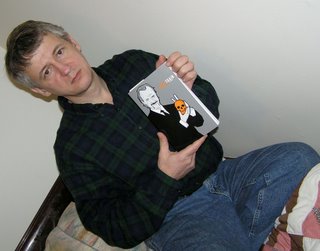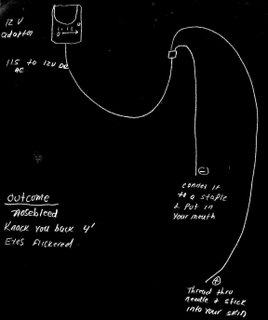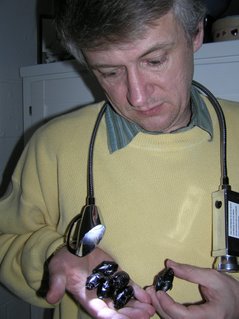 If you work for an institution, whatever your job, whatever your level, be yourself when you write. You will stand out as a real person among the robots.
If you work for an institution, whatever your job, whatever your level, be yourself when you write. You will stand out as a real person among the robots.—William Zinsser
In the United States, whether sports or movies, most people root for the underdog. In “Stand and Deliver,” a movie I hadn’t seen since before DVD, I had whole-heartedly approved of Edward James Olmos’s portrayal of Jaime Escalante, a real life mathematics teacher from East Los Angeles’s Garfield High School.
From what I had remembered, Mr. Escalante had the insurmountable task of teaching Hispanic students from an economically impoverished community AP Calculus. Initially he was hired as a Computer Science teacher, however, the school did not procure the necessary funds for equipment, which in turn meant that he would have to settle for teaching Math 1A (Basic Math).
Mr. Escalante accepted the change in subject matter, proving that he could easily adapt. Consequently, if the class name were any indication, his new employer gave him their low-track math students. Undeterred by this, Mr. Escalante felt he could do more than teach introductory mathematics courses. He wanted to prepare his students for college by teaching them higher level mathematics. He set his standards much higher than his colleagues, standards that seemed unfathomable to some of the parents, standards that, at one point, deeply offended the head of the mathematics department. From the viewpoint of Bronfenbrenner’s Ecological Theory, Mr. Escalante had to influence the existing culture to change their perception of education. He had to make a social impact on the students’ families, peers, the school system, and the neighborhoods. In true underdog fashion, once Mr. Escalante accomplished his goals, he had to deal with a national testing agency (macrosystem) that accused his students of cheating on a standardized test.
I did not agree with all his actions, but I do understand how his tactics could motivate adolescents. His sarcasm and name-calling may turn off some students or lead to negativity; but his altruistic intentions seem to negate or override any hostility. If, on the other hand, he were teaching elementary grade school children, his verbal bantering and cajoling would be totally inappropriate.
His use of math manipulatives—using apples for an introduction to fractions and using his fingers to demonstrate multiplication facts—are interesting techniques for attracting attention to his subject matter. Also, his ability to focus in on a classroom ruffian (played by Lou Diamond Phillips) and challenge his intellectual skills demonstrates how serious of an educator Mr. Escalante is. If you can get the least likely student to cooperate, then the rest of the class will tow-the-line. Mr. Escalante took a gamble with this student, creating a win or lose situation. Further evidence of his altruistic endeavor is depicted in a later scene when he allows this student three textbooks so he can protect his tough Chicano image. In exchange for the favor, Mr. Escalante is promised cooperation in class. I believe teachers need to be flexible with the students, and this scene shows a willingness to help a student learn even if it means breaking a rule.
As far as teaching methods, Mr. Escalante’s fill-in-the-hole analogy for adding positive and negative integers is a clever way of getting his students to visualize a key algebraic concept, and his ability to tie in the concept of zero with their heritage (Mayan Culture) is brilliant—it generates a natural curiosity among them. Once he wins over their admiration, he is able to get them to repeat multiplication rules for reinforcement and to use ritualistic chants and handclapping so they’ll stay academically alert.
In one scene, he invents an application problem where Pedro has five girlfriends, Carlos has one less than Pedro, and the Gigolo has … need I go any further. The story problem is blatantly sexist, but entertaining to the class. While the administration is tolerant of his story problem (he teasingly asks the school principal and head of the math department whether he can get some gigolos for a demonstration), he at this point is not being a good role model. In another scene, he indirectly questions a student’s sexual orientation because of his late arrival for class. Unfortunately, his chastising comments get the better of him in a later scene. He steps way over the line when he tells a female student that she has more boyfriends than Elizabeth Taylor. He is using a student’s personal life as classroom fodder and he should not be doing this. His determination to see his students succeed has, at times, made him lose sight of their individual identities. He is not a bad teacher; he is a driven teacher. Outside the school, he pleads with a father who owns a restaurant to let his daughter continue her studies, and he schedules a field trip for his students to show them where calculus is applied in the real world.
The first time I viewed “Stand and Deliver” I didn’t give much thought to Mr. Escalante’s interaction with his students. I was caught-up in his one-man crusade. I was cheering for the underdog, whom, against all odds, would achieve his goal. After the second viewing, I became more aware of the students’ socioemotional needs. Ironically, I’ve done some of the very same things Mr. Escalante has done in his classroom.


































